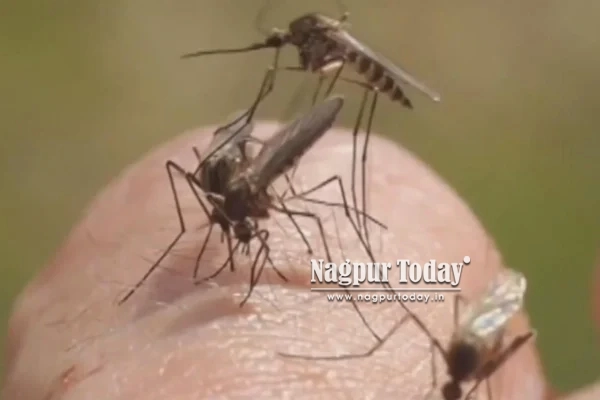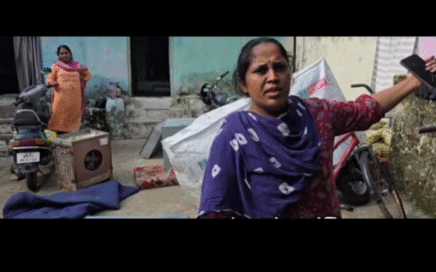Nagpur: After being battered by three days of relentless rain last week, Nagpur is now grappling with a different kind of discomfort, soaring temperatures, rising humidity, and a growing mosquito menace. The sudden pause in rainfall has brought little relief to citizens, who are now enduring stifling weather conditions compounded by poor drainage and rapid urbanisation.
The brief afternoon showers on Sunday did little to ease the oppressive heat. Instead, it only intensified the discomfort, trapping the moisture and making the air heavier. Streets are now filled with complaints of sticky weather, sleepless nights, and a surge in mosquito breeding, particularly in low-lying residential areas and around construction zones.
Last week, incessant rainfall had caused widespread waterlogging in several localities of the city. The sudden downpour had thrown daily life out of gear, traffic snarls, power outages, and overflowing drains were common across the city. But with the rain now taking an unexpected break, the mercury has started climbing again, adding to the discomfort of residents.
Urban planners and environmentalists point to the increasing concretisation of public spaces as one of the reasons for the poor climate response. “Earlier, roadside patches of soil used to absorb rainwater, helping maintain ground moisture and regulate the local temperature. Now, with most of those surfaces covered in concrete tiles and paver blocks, the city loses its natural water retention capacity,” said an environmental expert.
This loss of permeability not only affects groundwater recharge but also intensifies humidity after short spells of rain, turning the city into a heat-retaining oven with minimal avenues for relief.
Mosquito trouble on the rise
To make matters worse, stagnant water left behind by the previous rains has become a breeding ground for mosquitoes, leading to a spike in complaints of mosquito bites across residential colonies. Health officials fear that if the dry-wet spell continues, the risk of vector-borne diseases like dengue and chikungunya could increase.
“We’ve already begun fogging in vulnerable areas,” said a Nagpur Municipal Corporation (NMC) health official. “But citizens too must take precautions, avoid water stagnation, clean coolers, and use mosquito nets,” he added.
Many residents are now calling for better urban planning, improved stormwater drainage, and sustainable landscaping that includes natural soil patches and tree cover. While monsoon is expected to return later this week, the interim period is proving to be an uncomfortable and unhealthy pause.
For now, Nagpurians remain sandwiched between heat and humidity, holding out for the next spell of rain, one that cools, not chokes.















